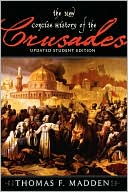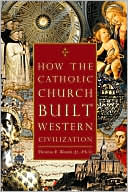Our focus questions:
who are they?
where are they from?
what place do they have-
-in the Biblical text
- in the story of salvation
-and in relation to Jesus specifically.
Study #7 and links to previous studies is here.
Uzziah (from christiananswers)
Meaning: the Lord is my strength; a contracted form of Azari'ah
One of Amaziah's sons, whom the people made king of Judah in his father's stead (2 Kings 14:21; 2 Chr. 26:1). His long reign of about fifty-two years was “the most prosperous, excepting that of Jehoshaphat, since the time of Solomon.” He was a vigorous and able ruler, and “his name spread abroad, even to the entering in of Egypt” (2 Chr. 26:8, 14).Jehovah, and “did that which was right in the sight of the Lord” (2 Kings 15:3; 2 Chr. 26:4, 5); but toward the close of his long life “his heart was lifted up to his destruction,” and he wantonly invaded the priest's office (2 Chr. 26:16), and entering the sanctuary proceeded to offer incense on the golden altar.
Azariah the high priest saw the tendency of such a daring act on the part of the king, and, with a band of eighty priests, he withstood him (2 Chr. 26:17), saying, “It appertaineth not unto thee, Uzziah, to burn incense.”
Uzziah was suddenly struck with leprosy while in the act of offering incense (26:19-21), and he was drivenfrom the temple and compelled to reside in “a several house” to the day of his death (2 Kings 15:5, 27; 2 Chr. 26:3).
He was buried in a separate grave “in the field of the burial which belonged to the kings” (2 Kings 15:7; 2 Chr. 26:23).
“That lonely grave in the royal necropolis would eloquently testify to coming generations that all earthly monarchy must bow before the inviolable order of the divine will, and that no interference could be tolerated with that unfolding of the purposes of God, which, in the fulness of time, would reveal the Christ, the true High Priest and >King for evermore” (Dr. Green's Kingdom of Israel, etc.).
from the kings of israel
Uzziah became king at 16 when his father, King Amaziah, was assassinated following a military disaster. Uzziah was faithful to the LORD for a long time, and during that time he and his nation prospered. Rising to power after a long period of decline, he restored to Judah much of the strength and influence that had been Israel's in the days of David and Solomon. He had a series of military successes against the Philistines, the Gurbaal, the Mehunims, and the Ammonites. He fortified Jerusalem, whose walls had been broken down just before he took office, and he built military outposts throughout the land as well. Being an inventor, he constructed turreted crossbows and catapults, mounting these in towers at his outposts. He was also active in agriculture, digging wells and planting vineyards throughout the land.
Unfortunately, later in his 52-year reign Uzziah presumed to alter the worship of the LORD, placing himself in the spotlight by entering the temple and burning incense, a duty reserved by the LORD for the priests only. A group of 81 priests confronted the king, informing him of his violation — a courageous act, given the unquestioned power of the king in those days. Uzziah became furious. While he raged at the priests, the LORD showed his support for the priests by afflicting Uzziah with leprosy, which became immediately visible on his forehead. As no leprous person was permitted in the temple, the priests began urging the now-unclean king to leave. Uzziah, himself in a panic, rushed away.
Uzziah never recovered from leprosy. For the rest of his life he lived in seclusion, and his son Jotham acted as king during his absence. Where to read Uzziah's story: 2 Kings 15:1-7; 2 Chronicles 26
Jotham (also from the kings of Israel)
King Jotham ascended to become Judah's eleventh ruler while his father, King Uzziah, still lived, this unusual arrangement being necessary because of Uzziah's medical retirement. Jotham apparently reigned for 13 years while his father lived, then three more years after his death.
Jotham lived a life of steady integrity and success. His activities include rebuilding portions of the temple and the city wall of Jerusalem, building towns and military posts throughout the land as Uzziah had, and suppressing a rebellion by the Ammonites upon his father's death. Where to read Jotham's story: 2 Kings 15:32-38; 2 Chronicles 27
From Christian answers
The son and successor of Uzziah on the throne of Judah. As during his last years Uzziah was excluded from public life on account of his leprosy, his son, then twenty-five years of age, administered for seven years the affairs of the kingdom in his father's stead (2 Chr. 26:21, 23; 27:1).
After his father's death he became sole monarch, and reigned for sixteen years (B.C. 759-743). He ruled in the fear of God, and his reign was prosperous. He was contemporary with the prophets Isaiah, Hosea, and Micah, by whose ministrations he profited. He was buried in the sepulchre of the kings, greatly lamented by the people (2 Kings 15:38; 2 Chr. 27:7-9).
Ahaz
King Ahaz devoted himself to pagan worship and its associated evil, touring the nation building shrines, and seeking the aid of every powerless religion he knew of. He even sacrificed his own sons, burning them alive in a ritual to the idol Molech. As a result of his infidelity, the LORD opposed Ahaz' administration, and during his 16-year reign Judah lost the empire built by his grandfather King Uzziah and his father King Jotham, suffered constant military raids by neighbors, and even lost national sovereignty, becoming a vassal to Assyria.
On one occasion, Israel invaded Judah and took 200,000 wives and children of Judah's warriors to be slaves. The LORD, unwilling to abandon Judah in spite of Ahaz' commitment to evil, sent a prophet to meet the conquering army, threatening them with the LORD's anger for kidnapping their brothers' families. Alarmed, the Israelites escorted the captives back to Jericho, where their husbands and fathers could recover them, even giving supplies and medical care to all who needed them. Yet in spite of this act of compassion prompted by the LORD, Ahaz refused to trust the LORD.
Later, when Judah was invaded by the combined armies of Israel and Syria, the LORD spoke through the prophet Isaiah, promising that the attack would not be successful — and within a couple years, both enemies' lands would be laid waste. But in spite of the LORD's offer of a miracle to verify the prophecy and aid Ahaz' faith, Ahaz wouldn't trust the LORD. He plundered the LORD's temple and his own palace to send a payment to the king of Assyria to rescue him. In response, Assyria captured Damascus, Syria's capital, and killed Syria's king. So Ahaz was rescued, but at a great cost: Judah became a vassal to Assyria.
After this incident, Ahaz visited defeated Damascus. Still refusing to turn to the LORD, he imported the idols of Damascus into Judah, building an imposing altar near the LORD's temple, after the pattern of the altar in Damascus. He even closed the LORD's temple, which was not opened again until Ahaz died.
In recognition of Ahaz' terrible leadership and its great cost to the nation, Ahaz was buried in a commoner's grave rather than the royal cemetery. Where to read Ahaz's story: 2 Kings 16; 2 Chronicles 28; Isaiah 7:1 - 8:4


No comments:
Post a Comment